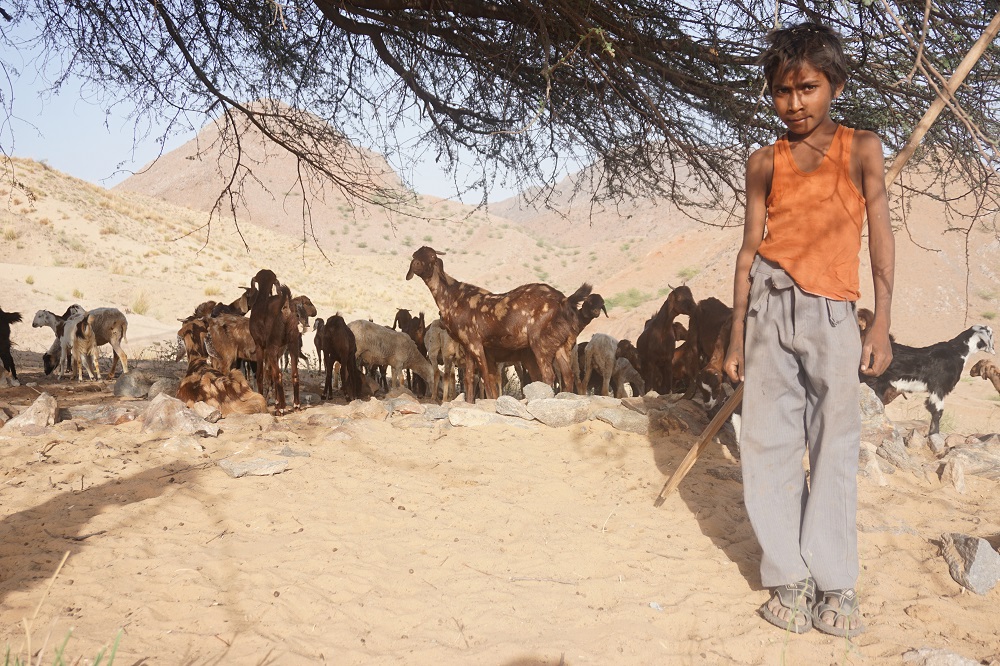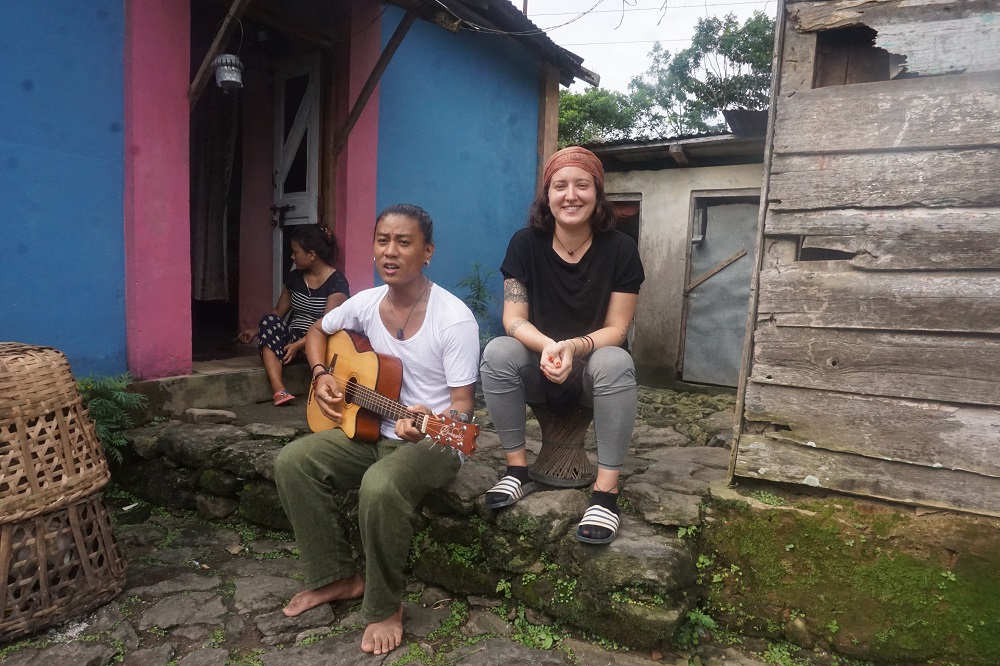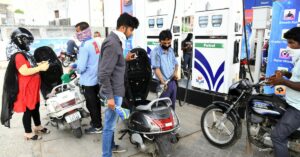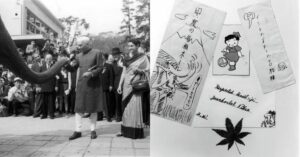What Travelling in India Has Taught Me About Volunteering in a Developing Country
There are many misconceptions about the impact volunteers have in developing countries and misinformation supplied to those interesting in volunteering. My travel experiences in India and my encounters with its people have given me invaluable insight in what it actually means to 'help' and made me realise that even with the best intentions, we can often end up doing more harm than good.

There are many misconceptions about the impact volunteers have in developing countries and misinformation supplied to those interesting in volunteering. My travel experiences in India and my encounters with its people have given me invaluable insight in what it actually means to ‘help’ and made me realise that even with the best intentions, we can often end up doing more harm than good.
There are two very common assumptions that people make about me in India when they meet me. One, I’m a charity worker, or two, I’m a Christian missionary.
People tend to think that I’m in India because I either want to ‘help’ it through charity work or ‘save’ its people through religion. People are surprised when I tell them that I’m neither of the above. I’m not here to do charity and I’m not here to ‘save’ anyone. In all honesty I’m just here because I love India, I’m fed up of London and I want to experience what living in India is like.
When people, like myself, come to any developing country, for whatever reason, we are guests, we’re not saviours. That’s not to say, however, that we can’t have a positive impact nor that we can’t benefit the lives of the people we encounter, but we must understand this crucial point first. We must go with the mindset that seeks to learn first and then help, if we can and if it’s appropriate to, second.
Through sharing some of my own experiences, I hope to offer some insight to individuals who want to ‘do their bit’ but don’t know how. I’m not an expert but as someone who has fallen into many of the traps that a lot of Westerners do when they come to developing countries, I hope that my experiences will help others avoid them, or at least give them some important points to consider.

Whether your intentions are to help a country or just to have a good time, travel doesn’t come without responsibility. Regardless of whether we want to accept it or not, it’s important that we’re aware of this point. Because of this, when a person travels, especially in the case of an individual from a developed country travelling to a country still developing, the experience requires a good degree of self-awareness and awareness of one’s surroundings. This is essential or one can easily fall prey to ignorance, insensitivity, disrespect and could end up doing more harm than good.
Large numbers of people from countries in the West set off to volunteer in developing countries or to have some sort of meaningful trip, for themselves and others. Often, we head off to these countries full of hope and with the best of intentions that we will create a positive impact in the lives of the people less fortunate than ourselves.
Sometimes we even feel that our very being would somehow inflict some positive change regardless of cultural, political, social and economic differences.

I’ve never gone on a volunteering trip before, but I’ve looked into volunteering opportunities quite extensively and know many people that have volunteered. In the UK, theses opportunities all seem to be packaged in the same way; ‘country XYZ has these issues, you can you can really make a difference!’ From the outset, people are told that they are going to help people, so why wouldn’t they go with a saviour mentality?
It’s true that many of these charities, NGOs and organisations are doing some incredible work across the world. They are having direct impact through the ground-level work they do as well as indirect impact through the awareness that they spread, but the reality is that a lot of people are not prepared well enough to achieve what they set out to on an individual level.
For many people, their volunteering trip is the first (and often the only) trip to a developing country. Many are under the impression that just because a certain way works in their own country or has a positive impact, it’s going to work for another. We can’t help but try to Westernise our situation. To draw experience from what we know, if only just to survive ourselves, but also because we think that’s what the country or its people need. This in itself can have negative implications and cause misunderstandings and confusion for both parties.
You may also like: Here Are 10 Very British Habits I Lost When I Moved to India
Here’s an example that I witnessed in a town in Himachal Pradesh where I was visiting my friends from Darjeeling who own a small cafe there.
One evening, a small crowd of us were sitting around the cafe, a mixture of both foreigners and Indians (although not local to the area). A group of three local boys approached my friends and began shouting at them in a very threatening manner. In just a few seconds, it escalated into a physical fight.
As my friends were out-of-towners, they just defended themselves and didn’t fight back. One of my British friends, however, not wanting to see his friends being beaten and unable to sit back and do nothing, responded how he would have done back home and started to fight off the three local boys, throwing punches too. As he did this though, many locals who were initially just standing around watching pounced on my British friend and he soon had up to six local men beating him. They were no longer interested in my friends who the were previously targeting.
My British friend’s intentions were to jump in to defend his friends against the unjust and unprovoked attack they were encountering. An act that in his own country would have yielded very different results. The local men, however, saw this as a foreigner getting involved with local business, and the situation took a nasty and unexpected turn.
We aren’t exposed to injustice as much as people in other countries are. If we see blatant injustice happening in our countries we feel compelled to take action. If we do, it’s almost a guarantee that other people will step up and help us challenge the injustice. The same rule doesn’t apply everywhere and we need to not only be aware of that but know how to deal with it.
A deeper understanding of local customs and cultures are imperative or we risk not only making people angry but making the situation worse for ourselves and others also. In the case of the example above, we can absolutely show our support to a victim of injustice but we shouldn’t try to be the ‘saviour’ by attacking the person inflicting the injustice or by showing them aggression verbally and physically.
You may also like: ‘India Is A Poor Country’ And Other Misconceptions We’ve Been Sold About India
With each passing day I’m becoming more and more aware of myself, my situation and the responsibilities that are placed upon me as a result of these things. Everyday, my belief in the importance of cultural awareness and cultural sensitivity is becoming more real and more passionate. There’s no space for ignorance.
I’m awakening to the responsibilities I’ve inherited by moving to India. It’s not something to be taken lightly and it’s a humbling thought.

My own experiences have taught me this. I can’t be the spokesperson for the plight of the Indian people. I can’t comment on anyone’s life experiences other than my own. I can try to understand, but my understanding will always be limited and can never be a substitute for the voices of the people who are actually living this reality. I still want to do my bit and contribute to a global change, but to do that I need to understand my own privilege and help provide a platform to a more diverse set of voices.
So, based on my own experiences and the experiences of people I’ve met along the way, here are some things to consider to ensure you have a positive impact on the country that you’re visiting/volunteering in:
- Travel with the intention of making friends with the natives and seek to understand their lives and their experiences.
- Make attempts to learn the language, especially phrases that are positive.
- Don’t volunteer for the sake of volunteering just because you want to do something ‘good.’ Volunteer because you have a certain skill-set or insight that people would genuinely benefit from.
- Don’t write people off just because they don’t speak English.
- Or don’t be scared to approach someone or spend time with someone just because they don’t speak English.
- Money is not the solution to everyone’s problems. Give your time instead of your money.
Seek to understand people’s problems and don’t just assume you know what they need. You might think what they need is obvious but you’re coming from a different perspective, what you think they need might not be important to them. - Show your support to a victim of injustice in ways that don’t involve violence or heated confrontation. Talk with them about it and find out how you can help. Report it or share it on a social media platform (if appropriate). Don’t try to be their ‘saviour’ by attacking the person inflicting the injustice or by showing them aggression verbally and physically.
- Don’t expect things to just be like they are at home. You are not at home so things are going to be different. Either embrace the change and if you think you have a helpful suggestion of how something can be improved, there’s no harm in offering it.
- When you return to your country talk positively about your experience, spread awareness of global issues and commit to challenging misinformed or negative stereotypes that you may hear, even if it’s from your friends.
- If you’re experience was negative consider why that was and how it could have been different. Always think with the intention of improving something for others.
Like this story? Or have something to share? Write to us: [email protected], or connect with us on Facebook and Twitter.
NEW: Click here to get positive news on WhatsApp!
This story made me
- 97
- 121
- 89
- 167
Tell Us More
We bring stories straight from the heart of India, to inspire millions and create a wave of impact. Our positive movement is growing bigger everyday, and we would love for you to join it.
Please contribute whatever you can, every little penny helps our team in bringing you more stories that support dreams and spread hope.



















